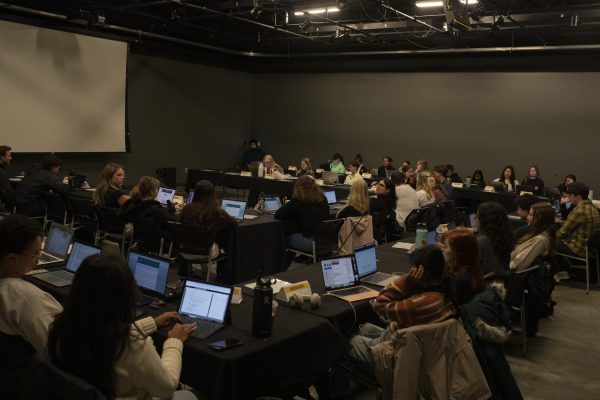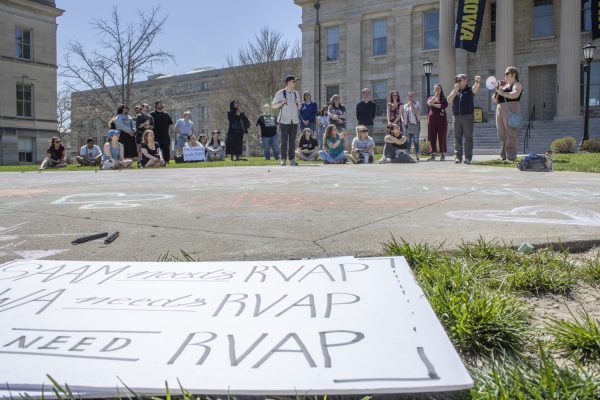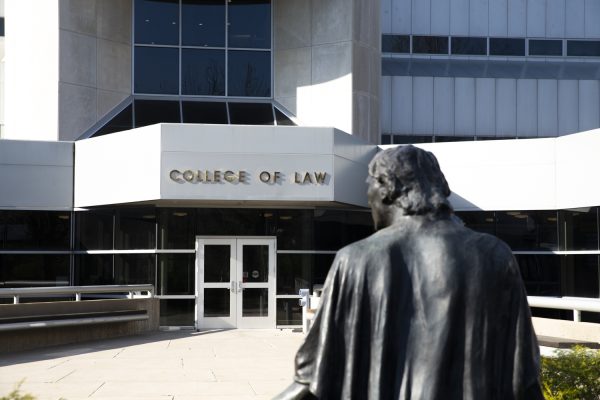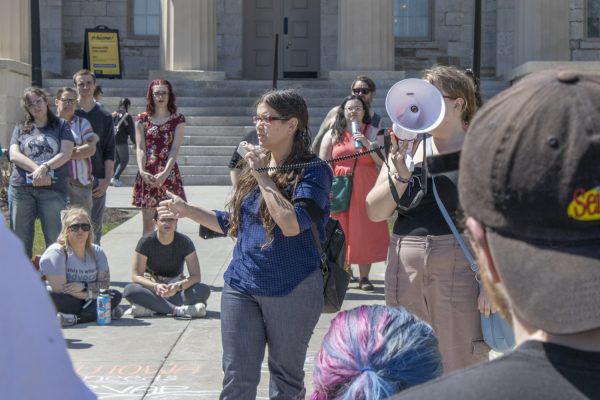Advantage Iowa recipients no longer required to attend yearly events
Students who receive the scholarship no longer have to attend three yearly events to maintain their eligibility.
The Old Capitol building is seen in 2018.
October 5, 2018
Students at the University of Iowa who receive the Advantage Iowa award will no longer run the risk of losing the scholarship because of the lack of time, the Center for Diversity and Enrichment announced earlier this semester.
Students who receive the Advantage Iowa scholarship no longer have to attend three yearly cultural events to maintain their eligibility.
The award is meant for students who come from underrepresented communities or who have participated in a federally funded Upward Bound program, according to the Diversity Center website.
A mass email was sent to award recipients at the beginning of the year informing them of the change.
“I encourage you to still attend events, but it is no longer tied to your Advantage Iowa eligibility,” said Nadine Petty, the executive director of the center, in an email to award recipients.
Brillian Qi-Bell, a sophomore who receives the scholarship, has been informed of the adjustment twice in the past year.
“We were emailed at the beginning of the year, and also, my multicultural specialist told me about it last year,” Qi-Bell said.
She said she believes the change will ultimately improve the college experience of students who receive the scholarships.
RELATED: Iowa Board of Regents requesting $20 million boost in state support to universities
“I think that this new requirement will benefit students, because before if they messed up, they would lose their entire scholarship,” Qi-Bell said. “Losing a scholarship over something so little would have severe consequences on their ability to attend college and didn’t really fulfill the purpose of the scholarship.”
Students are now required to maintain a 2.0 cumulative GPA, remain enrolled full-time at the UI, refrain from enrolling at another institution without a consortium agreement, and file the FAFSA.
“The change to the scholarship requirement was made so that Advantage Iowa Award recipients will engage more meaningfully with the Center for Diversity and Enrichment and our team,” said Lauren Garcia, the assistant director of the Center for Diversity and Enrichment. “We will be instituting new programming this year based on where a recipient is in their academic career — freshman, sophomore, junior, and senior cohorts. We will offer four programs, two in the fall and two in the spring, for each cohort that will be tailored to meet students’ needs based on where they are in their academic career. We hope that by offering these programs students will be able to receive information that is beneficial to their overall success at the University of Iowa, while also becoming more familiar with how CDE can serve as a resource to them as they pursue their goals.”
Students who receive the scholarship will still receive weekly emails about relevant events, but they are not required to attend nor will their attendance be taken.
“They still send out weekly emails informing you of events that happen throughout the year for those who are truly interested,” said sophomore Alexi Bolden, a scholarship recipient.
Bolden said that despite the disadvantages of mandatory event attendance, she believes the requirement could be valuable to incoming freshmen.
“After your first year, I believe that you would find a way to be involved if you were interested,” she said. “It’s a good initiative applied to freshmen, because they may be exposed to more events than they previously would have, and they will also know how to get involved, but after your first year, I’m not sure if it would be beneficial.”
Bolden said she believes the change may be more realistic for students’ busy schedules, as she witnessed many people leave events early during her freshman year.
“I think that it may benefit students, I know several people with the scholarship who would only go to events, sign up, and then leave,” Bolden said.
Qi-Bell suggested that rather than making event attendance obligatory, the Center for Diversity and Enrichment should focus on marketing events to freshmen.
“Instead of requiring students to participate through scholarship requirements, they should just have better marketing for the events,” Qi-Bell said. “The students, financially, are helped more through these new requirements. Increased advertising of multicultural resources could help [freshmen] through the transition more.”




















